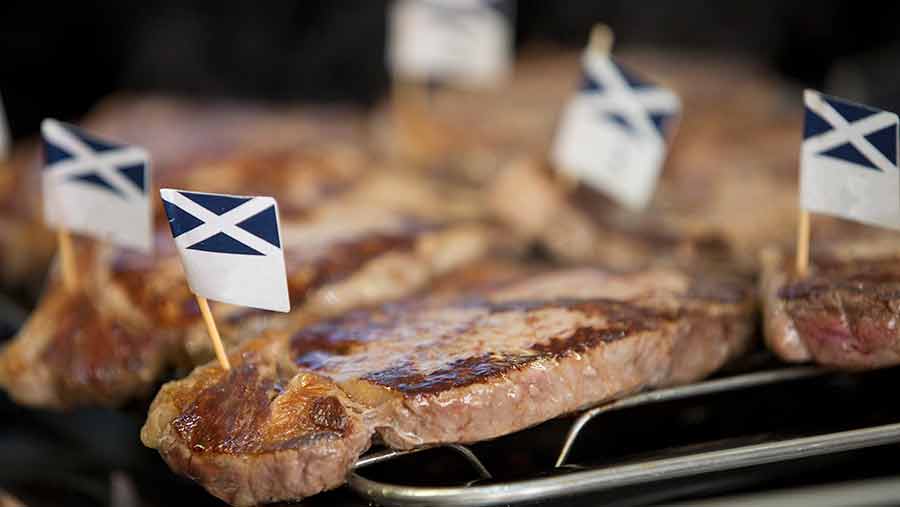Farmers must say no more often in price negotiations, says expert
 © Tim Scrivener
© Tim Scrivener Farmers must learn to say no to supermarket buyer demands for cheap food if they want to strengthen their hand in price negotiations.
That’s the advice from Ged Futter, director at The Retail Mind, a groceries retail consultancy practice based in Leeds.
Mr Futter says all too often farmers are willing to accept buyer demands for price drops, especially in an oversupply scenario.
See also: Top tips for doing business with supermarket buyers
But this only serves to undercut their fellow farmers and continues to drive the same poor behaviours from the retailers and fuel the race to the bottom.
“The retailers are trained to negotiate on price. It is as if a premier league is playing a pub team and they lose 38-0.
“If you are going up against a supermarket and your team is not trained as well, you should expect a heavy defeat.”
Mr Futter says farmers and growers need to consider their own product, look at other markets, whether it is for the food service, exports or a brand
“If all you have is own label and you are negotiating with a supermarket, you really don’t have many options,” he says.
Oxford Farming Conference report
In his report – Is the UK supply chain broken? – launched at this year’s Oxford Farming Conference, Mr Futter highlights the value of undersupply instead of oversupply in the market to maintain better farmgate prices.
In November 2022, egg producers reduced flock sizes due to rising costs, but retailers are reliant on Lion Eggs. Sainsbury’s sourced Italian eggs, but make up a small proportion of their eggs, to ensure they had availability.
But other retailers wanted only UK eggs, which are produced to high standards and carry fewer health risks for consumers, such as salmonella, compared with eggs sourced from abroad.
Farmers need to start thinking about what is possible in the world markets – they need to start thinking much bigger, said Mr Futter .
“We know that the UK has some of the highest standards for produce and meat,” he added.
“These high standards are attractive to global markets, including the Far East, where they are looking for farmers to supply them.”
Mr Futter is due to address the NFU Scotland conference in Glasgow today (Thursday 8 February), where he will tell farmers and crofters that Scotland is a country with a bright future for food production.
“Scotland is already a country that is an expert in exports,” he will say. “Salmon is the biggest exported food product we have in the UK; you have got whisky.
“You can piggyback on the trade that is already going into these countries – how can you then learn to export more goods, whether it is beef or soft potatoes?”
Top three tips for farmers and growers in any supermarket negotiation
- Say no
- Have an alternative
- Be prepared to walk away
Abundance of water
Scotland has water security in the long term – a huge proportion of the UK’s fresh water, said Mr Futter. Compare this with countries such as Spain and Morocco, where growers face restrictions on the amount of water they can use to produce food.
“The future is bright for Scottish farmers and growers, and that future is not exclusively with UK supermarkets,” said Mr Futter.
“I have a client who had been working with a UK supermarket for the past 20 years. Every year, they did not know what they would get paid for their products.
“Now they have options elsewhere in the UK and overseas. They can turn them down and go elsewhere.”
Australia and New Zealand are looking to exploit opportunities to sell food into Far East markets, where there are more than two billion people. UK farmers should be competing for market share, Mr Futter added.
